How to improve sexual function and libido in men with maca
Mild to moderate conditions
Take 1-1.5 tsp per day or 3-5 capsules of Maca for Men with breakfast or lunch. Minimum suggested treatment time is 6-12 weeks. Beyond this you may continue to consume maca daily and do not require taking a break from treatment if you are receiving positive benefits. For recipe ideas of how to include maca in your daily routine download our recipe booklet here or watch our recipe channel here.
1-1.5 tsp per day
3-5 capsules per day
Severe conditions
Take 1-1.5 tsp per day or 3-5 capsules of Maca for Men and in addition take a further 1-2 tsp per day of Concentrated Black Maca with breakfast or lunch. Concentrated black maca can be dissolved into water, teas, juices, smoothies or other drinks. Minimum suggested treatment time is 6-12 weeks.
1-1.5 tsp per day
3-5 capsules per day
+ an additional 1 tsp per day if required
For acute sexual performance and libido
Take 1-3 tsp of Concentrated Black Maca a minimum 1-2 hours before sexual activity as a natural libido and sexual performance enhancer.
1-3 tsp beforehand
Men’s sexual function and libido
Sexual dysfunction is an increasingly common medical concern that affects many men (and women), psychologically, emotionally, socially, and physically.
The main types of male sexual dysfunction are:
- Erectile dysfunction (difficulty getting/keeping an erection)
- Premature ejaculation (reaching orgasm too quickly)
- Delayed or inhibited ejaculation (reaching orgasm too slowly or not at all)
- Low libido (reduced interest in sex)
Erectile dysfunction (ED) is defined as the inability to obtain or maintain an erection during sexual relations1. The prevalence of erectile dysfunction increases with age in men, with those affected rising drastically from 2-53% over the ages of 30-80 years2,3. Due to high prevalence and association with age, ED is a major health concern2,3.
Physical causes of overall sexual dysfunction may be:
- Low testosterone levels
- Prescription drugs (antidepressants, high blood pressure medicine)
- Blood vessel disorders such as atherosclerosis (hardening of the arteries) and high blood pressure
- Stroke or nerve damage from diabetes or surgery
- Smoking
- Alcoholism and drug abuse
Psychological causes might include:
- Concern about sexual performance
- Marital or relationship problems
- Depression, feelings of guilt
- Effects of past sexual trauma
- Work-related stress and anxiety
Causes of sexual dysfunction are varied and include health conditions like diabetes mellitus, heart disease, hypertension, pelvic surgery, urinary tract symptoms and cigarette smoking or alcohol abuse 2,3. Neurological causes include stress, fear of sex, fear of inadequate sexual performance, anxiety, depression, anger and motor-neural conditions like stroke, cerebral trauma, Parkinson’s disease, Alzheimer’s disease or Multiple Sclerosis (MS). Other physical hindrances may include kidney and liver failure, sleep apnoea and pulmonary disease. During ageing, a decrease in hormonal levels and an increase in the incidence of cancer are probable factors in the increase of developing ED4. Furthermore, drugs for these types of conditions are also associated with ED5, meaning many men over their 50s may require assistance to improve their libido, sexual performance or sexual function.
Figure 1. The physiology of producing and maintaining an erection.
In normal sexual function, the hypothalamic-pituitary axis (HPA) works in coordination with the emotional centres of the brain to regulate the sex hormone response and stimulate an erection. This process is led by the parasympathetic nervous that prompts the release of a signalling molecule called nitric oxide (NO). Increased NO in the genitals leads to the production of another molecule called cyclic guanosine monophosphate (cGMP) that initiates relaxation of penile smooth muscle, leading to vasodilatation and permitting blood flow into the penis (creating an erection – Figure 1)5,6. This process and blood supply regulates penile rigidity, intromission (copulation time), and ejaculation7. An enzyme called Phosphodiesterase (PDE) destroys cGMP, reducing penile blood flow and making it harder to produce and maintain an erection; thus many pharmacological treatments for ED inhibit PDE and stimulate NO production8(Figure 1).
To increase sexual desire and function, some men may want to use a natural supplement instead of pharmacological treatments that have potentially devastating side-effects. One such natural alternative is the Peruvian medicinal root vegetable, maca, an Andean plant used for centuries to support healthy male sexual function9. In Peru, men are given maca daily prepared as a tea to increase libido, energy vitality, and virility with age. Commonly referred to today as ‘Peruvian Viagra,’ maca is considered a potent aphrodisiac and sexual performance enhancer. It also is used to assist men with fertility and conception. Traditionally yellow and black maca are used most for men wanting to improve their libido and enhance sexual performance.
How maca can assist with male sexual function and libido
Dietary supplementation with maca (Lepidium meyenii) has been well researched and clinically shown to alleviate psychological issues and improve sexual function and libido in men10. It is also believed to be able to increase NO and cGMP production in penile tissue helping to improve issues related to ED and sexual dysfunction9.
In one study, maca showed anti-depressant-like effects during times of chronic stress11. In a further study, significant improvement of physical and social well-being and sexual performance was reported by patients with mild ED after 12 weeks taking maca in a small randomised, double-blind clinical trial12. Maca is also beneficial for sexual dysfunction in women too, with studies showing improvements in female libido and sexual function, particularly post-menopause. Mild cases of low sexual desire may be the result of fatigue or similar physical discomfort. In multiple studies, maca treatment had anti-fatigue effects and reduced persistent pain13,14,15. As a libido enhancer maca has been shown to increase the number of complete intromissions (libido driven sexual acts) and decreased the time to erection in between each act in laboratory studies16,17. In a further small study of sportsmen, maca improved sexual desire as well as athletic performance18. Long term-treatment with maca in healthy adult males improved sexual desire, independent of psychosocial factors like depression and anxiety10.
Testosterone supplementation and psychological counselling are often suggested to address low male sexual function and libido, although testosterone replacement therapy (TRT) is typically reserved for those with hypogonadism and measurably low testosterone levels20. In severe cases, luteinizing hormone (LH) and follicle-stimulating hormone (FSH) are elevated in male hypogonadism (primary and secondary) because the testosterone produced is insufficient to inhibit their production. In rare cases, such as Klinefelter syndrome, androgen-producing Leydig cells are underdeveloped21. Maca contains an active component that promotes Leydig cell production, and long-term intake of maca can alleviate age-related decline of testosterone production from these cells21,22. Importantly, maca does not change serum reproductive hormone levels, including androgen11,23,24, thus decreasing any potential side effects for management of conditions like prostate cancer and other hormonal sensitive cancers.
For men research has shown that it is safe and effective to use maca as a natural physical enhancer and mood stabiliser to improve sexual function. To further improve libido and fertility, consider an additional short-term dietary intake of extracted black maca which increased concentrations of sperm count, specifically within the first seven days of administration, in animal studies25,26. For more information on maca and fertility, see our article.
References 1-13
1. Segraves, R. T. (2010). Considerations for diagnostic criteria for erectile dysfunction in DSM V. The journal of sexual medicine, 7(2), 654-660. https://www.ncbi.nlm.nih.gov/pubmed/20492414
2. Braun, M., Wassmer, G., Klotz, T., Reifenrath, B., Mathers, M., & Engelmann, U. (2000). Epidemiology of erectile dysfunction: results of the ‘Cologne Male Survey’. International journal of impotence research, 12(6), 305. https://www.ncbi.nlm.nih.gov/pubmed/11416833
3. Feldman, H. A., Goldstein, I., Hatzichristou, D. G., Krane, R. J., & McKinlay, J. B. (1994). Impotence and its medical and psychosocial correlates: results of the Massachusetts Male Aging Study. The Journal of urology, 151(1), 54-61. https://www.ncbi.nlm.nih.gov/pubmed/8254833
4. Kotta, S., Ansari, S. H., & Ali, J. (2013). Exploring scientifically proven herbal aphrodisiacs. Pharmacognosy reviews, 7(13), 1. https://www.ncbi.nlm.nih.gov/pmc/articles/PMC3731873/
5. Francis, S. H., Busch, J. L., & Corbin, J. D. (2010). cGMP-dependent protein kinases and cGMP phosphodiesterases in nitric oxide and cGMP action. Pharmacological reviews, 62(3), 525-563. https://www.ncbi.nlm.nih.gov/pmc/articles/PMC2964902/
6. Alwaal, A., Breyer, B. N., & Lue, T. F. (2015). Normal male sexual function: emphasis on orgasm and ejaculation. Fertility and sterility, 104(5), 1051-1060. https://www.ncbi.nlm.nih.gov/pubmed/26385403
7. Lue, Tom F. “Erectile dysfunction.” New England journal of medicine 342, no. 24 (2000): 1802-1813. https://www.ncbi.nlm.nih.gov/pubmed/10853004
8. Corbin, J. D. (2004). Mechanisms of action of PDE5 inhibition in erectile dysfunction. International journal of impotence research, 16(S1), S4. https://www.ncbi.nlm.nih.gov/pubmed/15224127
9. Zhang, Y., Zhou, F., & Ge, F. (2019). Effects of combined extracts of Lepidium meyenii and Allium tuberosum Rottl. on erectile dysfunction. BMC Complementary and Alternative Medicine, 19(1), 135. https://www.ncbi.nlm.nih.gov/pubmed/31215433
10. Gonzales, G. F., Cordova, A., Vega, K., Chung, A., Villena, A., Góñez, C., & Castillo, S. (2002). Effect of Lepidium meyenii (MACA) on sexual desire and its absent relationship with serum testosterone levels in adult healthy men. Andrologia, 34(6), 367-372.
11. Ai, Z., Cheng, A. F., Yu, Y. T., Yu, L. J., & Jin, W. (2014). Antidepressant-like behavioral, anatomical, and biochemical effects of petroleum ether extract from maca (Lepidium meyenii) in mice exposed to chronic unpredictable mild stress. Journal of medicinal food, 17(5), 535-542. https://www.ncbi.nlm.nih.gov/pubmed/24730393
12. Zenico, T., Cicero, A. F. G., Valmorri, L., Mercuriali, M., & Bercovich, E. (2009). Subjective effects of Lepidium meyenii (Maca) extract on well‐being and sexual performances in patients with mild erectile dysfunction: a randomised, double‐blind clinical trial. Andrologia, 41(2), 95-99.https://www.ncbi.nlm.nih.gov/pubmed/19260845
13. Li, J., Sun, Q., Meng, Q., Wang, L., Xiong, W., & Zhang, L. (2017). Anti-fatigue activity of polysaccharide fractions from Lepidium meyenii Walp.(maca). International journal of biological macromolecules, 95, 1305-1311. https://www.ncbi.nlm.nih.gov/pubmed/27840217
References 14-25
14. Tang, W., Jin, L., Xie, L., Huang, J., Wang, N., Chu, B., … & Zhang, Y. (2017). Structural characterization and antifatigue effect in vivo of maca (Lepidium meyenii Walp) polysaccharide. Journal of food science, 82(3), 757-764. https://www.ncbi.nlm.nih.gov/pubmed/28231388
15. Tenci, B., Mannelli, L. D. C., Maresca, M., Micheli, L., Pieraccini, G., Mulinacci, N., & Ghelardini, C. (2017). Effects of a water extract of Lepidium meyenii root in different models of persistent pain in rats. Zeitschrift für Naturforschung C, 72(11-12), 449-457. https://www.ncbi.nlm.nih.gov/pubmed/28822987
16. Cicero, A. F., Bandieri, E., & Arletti, R. (2001). Lepidium meyenii Walp. improves sexual behaviour in male rats independently from its action on spontaneous locomotor activity. Journal of ethnopharmacology, 75(2-3), 225-229. https://www.ncbi.nlm.nih.gov/pubmed/11297856
17. Zheng, B. L., He, K., Kim, C. H., Rogers, L., Shao, Y. U., Huang, Z. Y., … & Zheng, Q. Y. (2000). Effect of a lipidic extract from Lepidium meyenii on sexual behavior in mice and rats. Urology, 55(4), 598-602. https://www.ncbi.nlm.nih.gov/pubmed/10736519
18. Stone, M., Ibarra, A., Roller, M., Zangara, A., & Stevenson, E. (2009). A pilot investigation into the effect of maca supplementation on physical activity and sexual desire in sportsmen. Journal of ethnopharmacology, 126(3), 574-576. https://www.ncbi.nlm.nih.gov/pubmed/19781622
19. Male Hypogonadism – Genitourinary Disorders. (n.d.). Retrieved August 12, 2019, from https://www.merckmanuals.com/professional/genitourinary-disorders/male-reproductive-endocrinology-and-related-disorders/male-hypogonadism#v1050865
20. Yoshida, K., Ohta, Y., Kawate, N., Takahashi, M., Inaba, T., Hatoya, S., … & Tamada, H. (2018). Long‐term feeding of hydroalcoholic extract powder of Lepidium meyenii (maca) enhances the steroidogenic ability of Leydig cells to alleviate its decline with ageing in male rats. Andrologia, 50(1), e12803. https://www.ncbi.nlm.nih.gov/pubmed/28295471
21. Gao, X. C., Lv, J. W., Li, C. N., Zhang, N. X., Tian, L. L., Han, X. Y., … & Sun, J. M. (2019). Screening of the Active Component Promoting Leydig Cell Proliferation from Lepidium meyenii Using HPLC-ESI-MS/MS Coupled with Multivariate Statistical Analysis. Molecules, 24(11), 2101. https://www.ncbi.nlm.nih.gov/pubmed/31163647
22. Stefano, G. B., Liu, Y., & Goligorsky, M. S. (1996). Cannabinoid receptors are coupled to nitric oxide release in invertebrate immunocytes, microglia, and human monocytes. Journal of Biological Chemistry, 271(32), 19238-19242. https://www.ncbi.nlm.nih.gov/pubmed/8702604
23. Gonzales, G. F., Cordova, A., Vega, K., Chung, A., Villena, A., & Góñez, C. (2003). Effect of Lepidium meyenii (Maca), a root with aphrodisiac and fertility-enhancing properties, on serum reproductive hormone levels in adult healthy men. Journal of endocrinology, 176(1), 163-168. https://www.ncbi.nlm.nih.gov/pubmed/12525260
24. Gonzales, G. F., Nieto, J., Rubio, J., & Gasco, M. (2006). Effect of Black maca (Lepidium meyenii) on one spermatogenic cycle in rats. Andrologia, 38(5), 166-172.https://www.ncbi.nlm.nih.gov/pubmed/16961569
25. Inoue, N., Farfan, C., & Gonzales, G. F. (2016). Effect of butanolic fraction of yellow and black maca (Lepidium meyenii) on the sperm count of adult mice. Andrologia, 48(8), 915-921. https://www.ncbi.nlm.nih.gov/pubmed/27681648
Testimonials for libido treatment with our maca
GOT MY MOJO BACK!! THANKS MACA.
Was amazed, took the Mens maca for a month and found my energy levels increased massively along with my libido. My girlfriend is so much happier ;-) Definitely gonna keep going with this stuff, the best i've found so far.

Given me a new lease of life
I was so glad i found The Maca Experts as they really seemed to know their stuff. They advised me on what to take and after combining maca for men with some of the red extracts i had big improvements in energy, clarity and vitality. I felt able to be more active and have since lost 15kg. My blood pressure has come down and my libido has gone up. Ive also seen improvements in my prostate with the red sachets, can sleep through the night easily now without needing to get up to urinate. Wow this stuff really works.

IMPROVEMENTS AT THE GYM AND ON THE FIELD
Been taking the mens maca powder and adding in the high dose black sachets before hitting the gym. Felt energy pick up instantly, benching more than ever before and feel like my stamina and endurance has improved. Its drastically improved my game on the field too, gonna get the whole team onto it. Couldn't live without it now, im hooked.


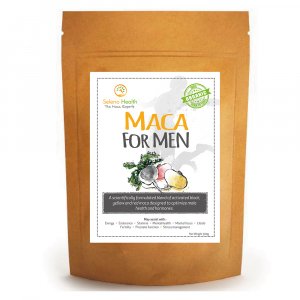
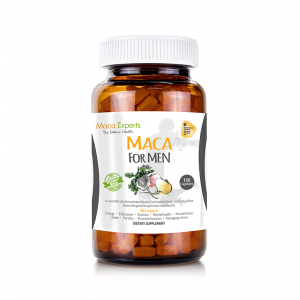
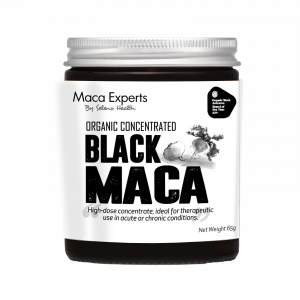
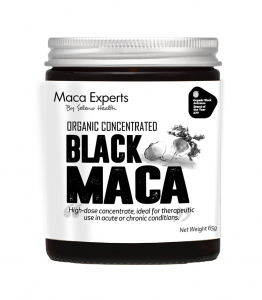

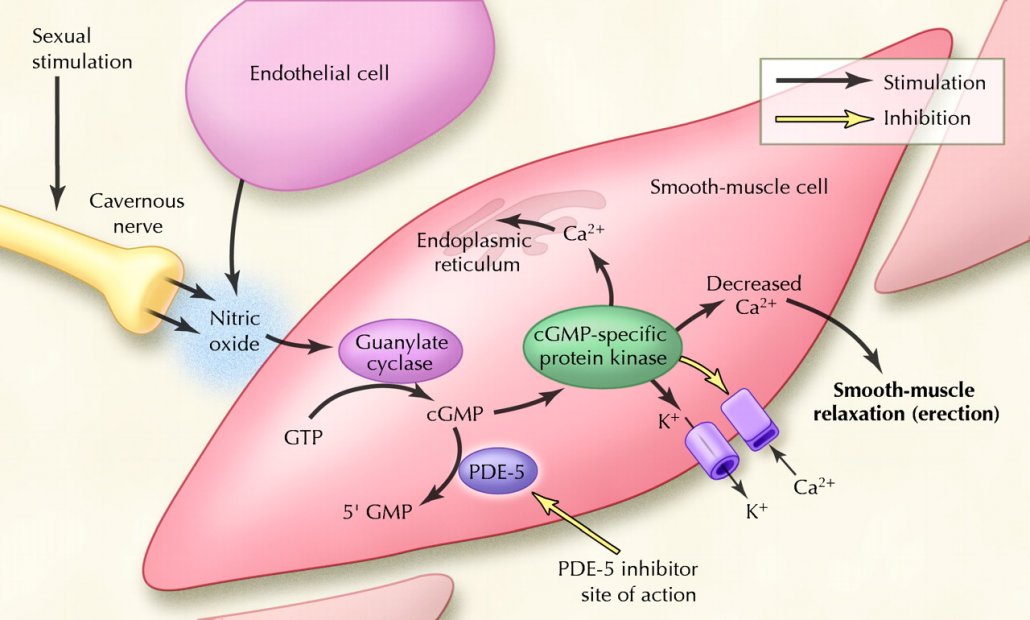





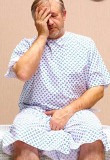
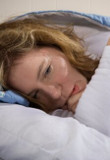
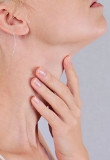






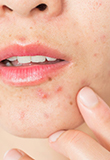

Leave a Reply
Want to join the discussion?Feel free to contribute!